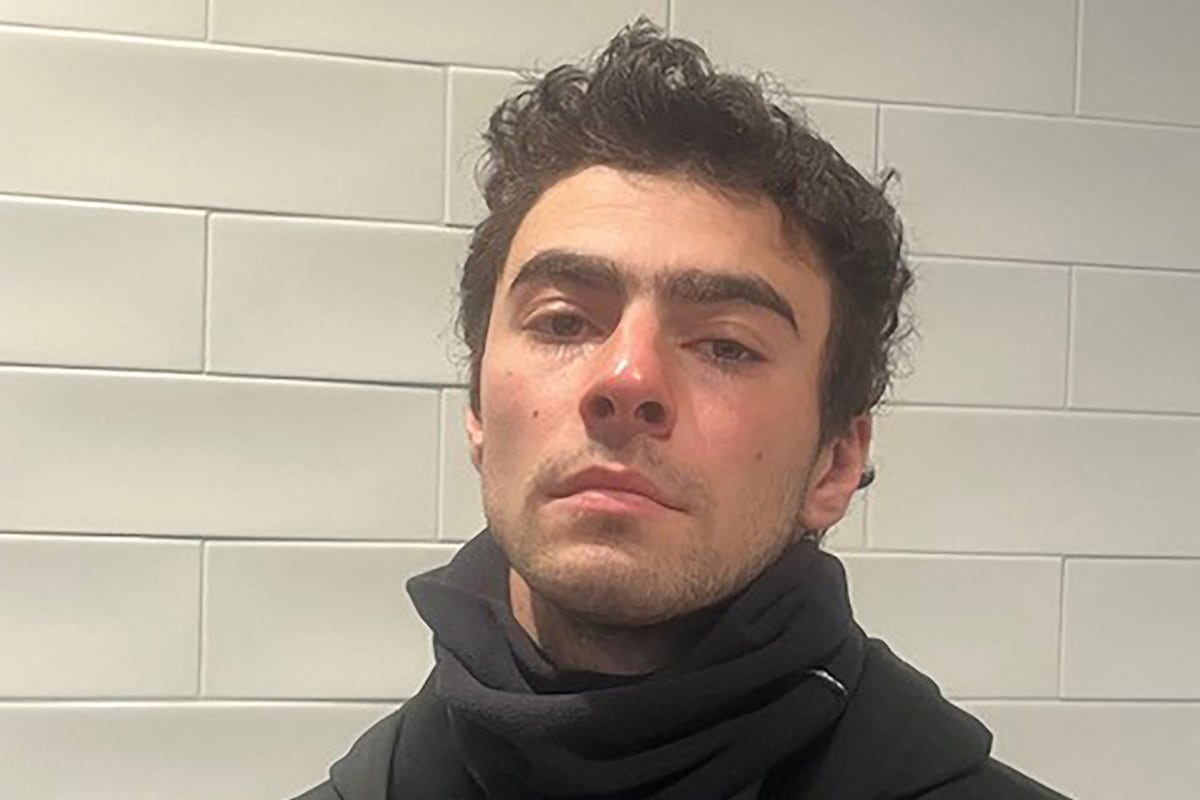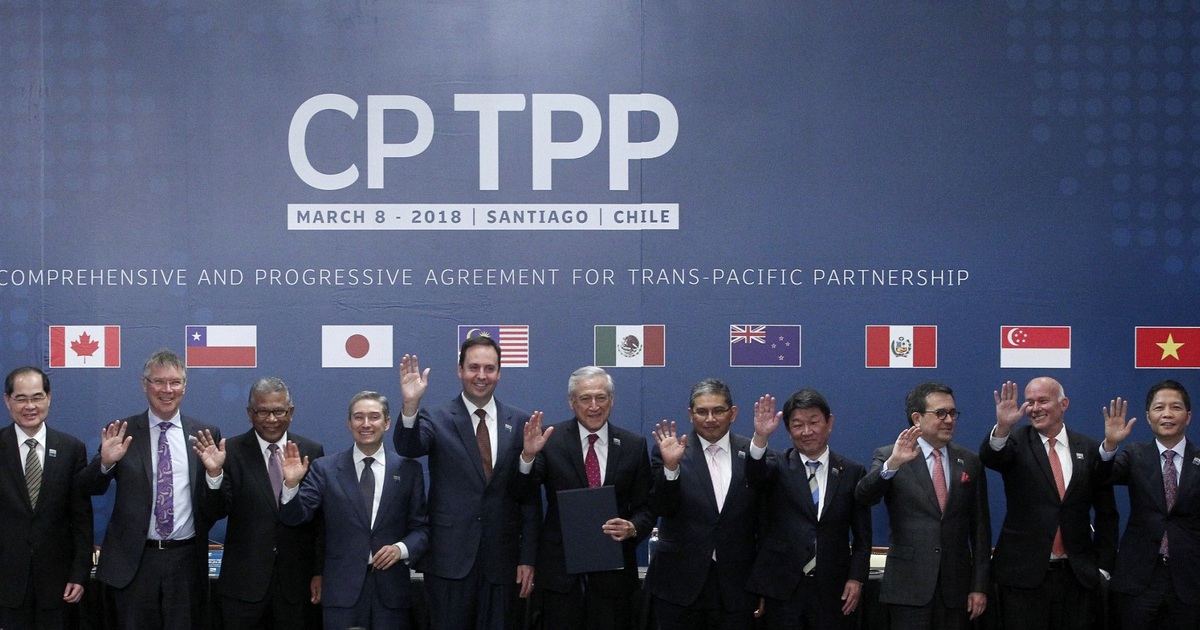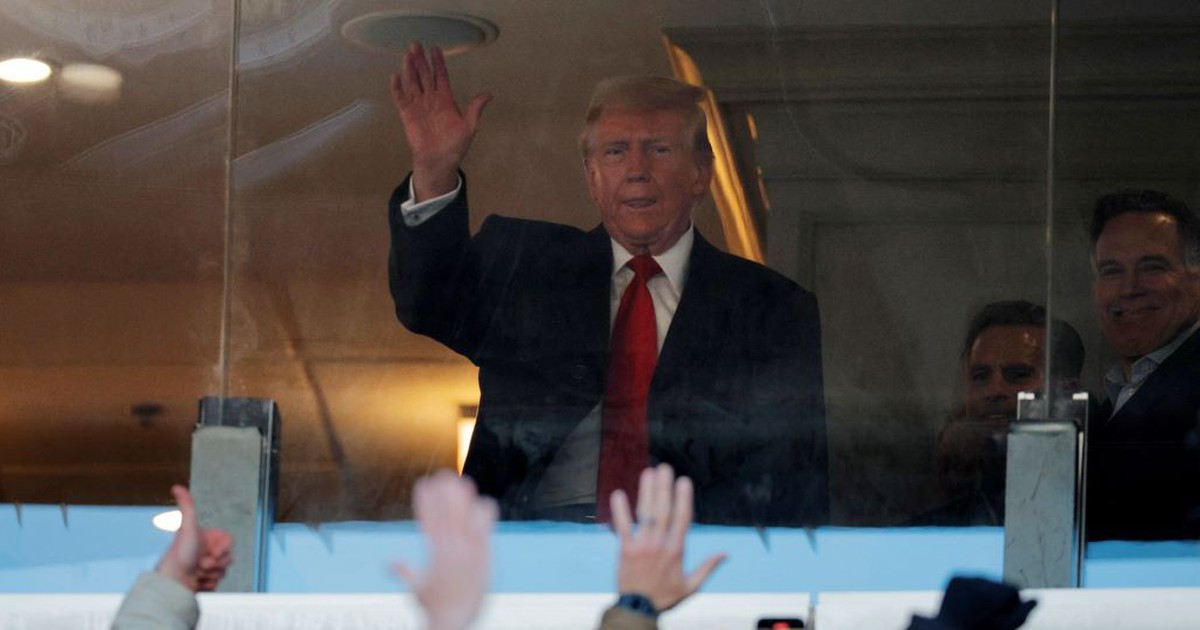Hero or executioner. Vigilante or terrorist. Sick or villain. The figure of Luigi Mangione, accused of murdering Brian Thompson, CEO of UnitedHealthcare, in New York, casts as many unknowns as shadows, especially those of the last six months, in which he interrupted all contact with family and friends. Only the trail of clues from his social media accounts—closed or deleted after being arrested—can allow us to find out the reasons that led him to allegedly fire several shots in the back of the executive, 50 years old and father of two children.
The line of investigation swings between these two poles: whether the actions of the young man, 26 years old, were due to a lack of ideology—customized from self-help books, libertarian touches and philosophical quotes—or to a psychiatric disorder, perhaps an excessive narcissism that made him believe he was unpunished and chosen to hit the “corrupt” health insurance system, a billion-dollar business in the United States. “Frankly, these parasites deserved it” read the note found in his backpack, along with the weapon used in the crime.
There is also another possibility: that of exacerbated apprehension or hypochondria. However, concern about his health, his back pain or the “brain fog” he says he suffered in college does not theoretically push anyone to pull the trigger. His behavior in the few public appearances since he was arrested – sometimes shouting meaningless phrases at journalists, now silent and with his head bowed – adds complexity when it comes to establishing why he supposedly did what he did.
In addition to the ongoing investigation by the police and the FBI, some experts are inclined to see it as an abscess of the system, in a country obsessed with security and defense that often has the enemy at home. Prototypical incarnation of the American dream, Mangione, grandson of a Sicilian immigrant who came to the United States with nothing and who managed to get rich over the years, would have turned against the system whose main values he represents: brilliance, success, prosperity . Another puppy of the elite, like Patty Hearst, the very rich terrorist heiress, determined to blow up the system from within. The FBI has maintained for years that the main threat to national security is not jihadists, but domestic terrorists, and for some Mangione is an exponent of that category, with an ideological fluidity, or rather a binge, that ranges from libertarianism to idealism.
His unverified comments on Michael Moore’s documentary appear on a social network Sickoa devastating portrait of American healthcare. An X (formerly Twitter) account allegedly linked to him includes recent posts about the negative impact of smartphones on children; healthy eating and exercise habits; various psychological theories, and a quote from the Indian thinker Krishnamurti about the dangers of “adapting well to a deeply sick society.” On the networks, he interacted with fans of holistic health, self-improvement, hallucinogenic mushrooms, the role of technology in society and a certain anti-system sentiment.
Together with his experiences of a trip to Japan that instilled in him a certain temptation to transcendence (“be Zen,” he wrote to a friend), these are the last known strokes of the young man before he violently shook the multi-million dollar industry on December 4. medical insurance. With his criticism of corporate greed, written in his peculiar manifesto, Mangione has provoked a tsunami of applause that reveals the deep citizen unrest against a system that revolves around the credit card, while terrifying stories of abuse of credit cards come to light. the insurers.
As your posts are scrutinized on-linenew details emerge about his impatience with “a capitalist society” and his search for refuge in the mountains of Japan. The audio message he sent to a friend he had met while traveling on April 27 was the penultimate one before he disappeared until November 24, when he checked into a popular Manhattan hostel from no one knows where. The objective of the trip through Asia was to meditate, read and write, and from the gorge of a river in the Japanese region of Nara, according to the route outlined by the newspaper The New York TimesMangione told that incidental friend, with a calm voice, that he needed “some time.”
The alleged murderer is shown on the networks as someone who was fighting disabling medical problems and, at the same time, more and more disillusioned with the society in which he lived. During his trip through Asia, he railed against the “modern Japanese urban environment,” claiming that automation and the general absence of “natural human interaction” were responsible for the falling birth rate. At the same time, he expressed his interest in those who defended violence as a stimulus, or perhaps a solution, for example the anti-technology manifesto of the Unabomber, the American terrorist who kept the security forces in check for two decades, which Mangione reviewed, with four the five possible stars, on the web GoodReadsand which constitutes its last digital signal before disappearing.
The Unabomber himself was another clear example of a lone wolf, of a domestic terrorist. But Mangione’s anger with society draws attention to someone who, unlike other shabby criminals, had fortune on his face: from a rich family, a student at an elitist high school in Maryland, a computer engineer from the prestigious University of Pennsylvania who can give yourself the luxury of a sabbatical trip around the world. That is why his acquaintances do not believe the crime of which he is accused.
It seems that it was at the university when his medical problems worsened, those with his back and also the “confusion or mental fog” to which the specialists, he says, did not know how to respond, but which he had been carrying since high school. Mangione says the adaptive stress on campus caused him sleep problems and episodes of disorientation. After earning straight A’s in high school, his grades began to decline, he wrote on Reddit. “It is absolutely brutal to have a life-destroying problem, especially because the problem itself erodes the critical/logical thinking you would normally use to address it. People around you probably won’t understand your symptoms; “Certainly not to me,” he explained in that virtual community.

Medical tests were unsuccessful. He diagnosed himself by searching the internet for references to various disorders. His last year of university was the one during the pandemic, when he completed his bachelor’s degree and a master’s degree at the same time. He immediately found a job at TrueCar, a California technology company dedicated to the car buying and selling business, and in early 2022 he moved to Honolulu with a very well-paying job. It was in Hawaii where, after taking a surfing lesson, his back problems skyrocketed: he felt tingling, numbness, and persistent pain every day. He told a work colleague that he did not have relationships with anyone, because “having physical intimacy with his back pain was not possible.”
Mangione left work in Honolulu in early 2023 to read and do yoga. I read everything from self-help books to George Orwell. Reviewing his reviews, his initial philosophical inclination increasingly leans toward self-help pseudopsychology—that other multimillion-dollar business. made in USA—, with titles about the importance of tenacity; how to achieve digital disconnection or, in short, an exercise manual to develop muscles. On Reddit, Mangione shared that he had successfully undergone spinal surgery in July 2023, but his posts did not mention any frustration or criticism of the health insurance industry. UnitedHealthcare issued a statement this week asserting that Mangione never took out a policy with them.
Accused, among other crimes, of second-degree murder, his defense lawyer, another figure who gains prominence as the case develops – the story smells like a series from the first minute -, tirelessly repeats that his client enjoys, like any other , of the legal presumption of innocence. Meanwhile, the evidence—no longer virtual, but material—is accumulating: the 3D-printed gun found in his backpack was the one used to fire the nine-millimeter bullets that ended Thompson’s life almost instantly.
Three shell casings collected on the sidewalk where the executive fell dying had the words written on them: delay (delay), deny (deny) and depose (depose or, in a judicial context, declare), one word per bullet, which coincide with the title of a 2010 book that critically exposes the insurance sector. Mangione’s fingerprints also match those found on objects found near the crime scene, such as a water bottle. Too much evidence in a case in which, knowing the sequence of events, the modus operandiand the identity of the murderer, the big question still remains unanswered, why. The country that invented the successful genre of true crime He remains literally absorbed in the screens waiting for the response.








